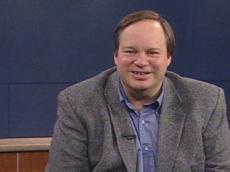|
|
TODAY.AZ / Analytics
The Internet’s Next Act
30 July 2014 [16:50] - TODAY.AZ
 By J. Bradford DeLong
By J. Bradford DeLongTen years ago, the world emerged from the dot-com bust and started to look more soberly at the Internet's potential. While speculative greed and fear of missing out might have overplayed the short-term outlook, the Internet's immense longer-term prospects were never in doubt. I, and other optimistic economists, assumed that free information and communication would herald an era of rapid productivity growth and improved wellbeing - to a greater or lesser extent - for everyone, regardless of their skills, wealth, or social background. Were we right?
In many respects, the revolution in information and communications technology (ICT) has delivered more than it promised - and often in unpredictable ways. For many, the true marvel of the digital age is its creation of a parallel universe. Anyone with a laptop and an Internet connection can gossip with (or about) virtual friends; witness extraordinary events that may or may not have happened; or play games in a mock world of incomparable complexity.
The Internet has created a dreamscape that is accessible to all and that can inspire us to still greater heights of imagination. Indeed, those who scoff at the value of this should remember that ever since Homer sang around the hearth fire about the wrath of Achilles, dreams have been our greatest source of pleasure and inspiration.
But the benefits of the Internet have come not just to those who work or play online. Everyone has gained to some degree. Go to a WalMart, Costco, Tesco, or Lidl superstore anywhere in the world, and compare the price, quality, and range of today's goods with those of a generation or two ago. This dramatic change for the better largely reflects the rapid development of global supply chains, with real-time monitoring of customer preferences enabling manufacturers located on the other side of the world to know instantly what, when, and how much to produce.
There is much more to come. Companies are using the Internet to "crowdsource" new ideas, and even let customers co-design their own products. New Web-based platforms allow ordinary people - without money or special skills - to share their cars, spare bedrooms, or even do-it-yourself tools, thus challenging the dominance of global corporations. The "Internet of Things" is connecting simple household items - like a thermostat - to the Web, helping owners to save money and even reduce their carbon emissions.
And yet we must still ask: Is everyone really benefiting in the new economy? Only a fortunate few, especially those who combine innovative thinking with financial acumen, have fully captured the monetary profits of the ICT revolution, becoming its poster children in the process.
Lower down the economic scale, most people, though enjoying easy access to technology and low prices, have lost ground, with real wages falling for many years. This is not a temporary decline: labor in advanced Western economies can no longer command a large wage premium, and workers' situation may worsen further.
Moreover, white-collar managers and employees - the brainpower that keeps the intricate global corporate machinery whirring, and once the backbone of the middle class - are no longer in such high demand. Many of their skills, which long underpinned their status, careers, and livelihoods, are becoming redundant.
For today's ordinary middle-class family, a medical mishap can become a financial catastrophe. Owning a home involves a life of indebtedness. Providing a decent education to one's children requires struggle and sacrifice. The assumptions that defined middle-class households - and many working-class households - for at least two generations are disappearing before our eyes.
Who is speaking out for them? Most households stand to gain from the continuation of the ICT revolution. But middle-class and working-class families would benefit more if the hyper-cheap products and services, free information, and virtual leisure experiences augmented, rather than eroded, their marketable skills. The politician who can figure out how to steer the revolution accordingly might never lose another election.
Copyright: Project Syndicate
/AzerNews/
URL: http://www.today.az/news/analytics/135782.html
 Print version
Print version
Views: 4173
Connect with us. Get latest news and updates.
See Also
- 27 February 2026 [18:00]
Beyond optics: How Israel–India partnership alters Pakistan and Iran’s calculus - 27 February 2026 [13:41]
How Azerbaijan’s post-war leverage meets Armenia’s economic reality - 27 February 2026 [08:30]
SOCAR wins European Commission approval for Italian takeover - 26 February 2026 [12:21]
Britain sanctions Russian disinformation in Georgia while BBC echoes it in Azerbaijan - 26 February 2026 [00:00]
Massacre at Khojaly and shadow of 366th regiment - 25 February 2026 [20:51]
Garabagh and East Zangazur poised to add 15 billion manats to Azerbaijan’s economy [COMMENTARY] - 25 February 2026 [08:30]
How industrial parks emerge as backbone of Azerbaijan’s export strategy - 24 February 2026 [13:22]
Moscow’s dream of return collides with changed South Caucasus - 24 February 2026 [08:30]
Russia escalates its shadow war against Azerbaijan as Baku deepens western ties - 23 February 2026 [13:42]
Russian oil row puts Hungary, Slovakia at odds with Ukraine amid winter blackouts
Most Popular
 From Strasbourg to Epstein Files: How Jagland destroyed Norway's relations with Azerbaijan
From Strasbourg to Epstein Files: How Jagland destroyed Norway's relations with Azerbaijan
 Pashinyan rejects calls to oust Russian military base from Armenia
Pashinyan rejects calls to oust Russian military base from Armenia
 President Erdo?an praises security forces at Ramadan iftar in Be?tepe
President Erdo?an praises security forces at Ramadan iftar in Be?tepe
 National Art Museum holds lecture dedicated to Khojaly Tragedy
National Art Museum holds lecture dedicated to Khojaly Tragedy
 State Academic Opera and Ballet Theatre stages Christoph Gluck's production
State Academic Opera and Ballet Theatre stages Christoph Gluck's production
 Turkiye unveils Samsun-Trabzon high-speed rail project cutting travel hours
Turkiye unveils Samsun-Trabzon high-speed rail project cutting travel hours
 Ukraine, US launch high-level talks in Geneva on economic support and security issues
Ukraine, US launch high-level talks in Geneva on economic support and security issues
